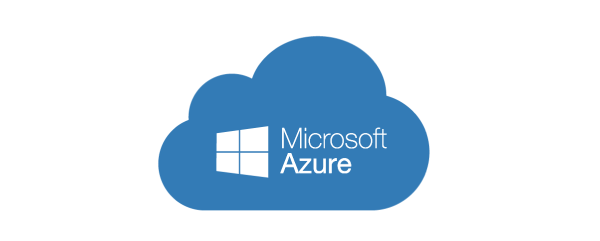
Introduction
Have you ever wondered how businesses store huge amounts of data, run powerful apps, or even secure their digital assets without buying tons of expensive hardware? That’s where Azure Cloud Services steps in. Think of Azure as a massive toolbox in the sky—packed with everything from storage to AI, ready whenever you need it.
In this article, we’ll take a deep dive into Azure Cloud Services, exploring its features and sharing best practices to help you or your business make the most of it.
What are Azure Cloud Services?
At its core, Microsoft Azure Cloud Services is a cloud computing platform. It allows individuals and companies to use servers, databases, software, and networking over the internet instead of buying expensive IT infrastructure.
It’s like renting a fully furnished apartment instead of building your own house—you save money, time, and effort.
Why Azure is Popular Worldwide
Azure is trusted by millions, from small startups to big names like Samsung and Coca-Cola. Its popularity comes from:
-
- Flexibility – Use what you need, when you need it.
- Reliability – Microsoft guarantees uptime with its data centers spread globally
- Security – Strong protection measures keep data safe.
Key Features of Azure Cloud Services
Some of the standout features include:
- Virtual Machines (VMs): Run applications on the cloud without buying physical servers.
- Azure SQL Database: A managed database service with no need for manual maintenance.
- App Services: Quickly build and host web apps.
- DevOps Tools: Streamline development and deployment.
Azure’s Global Network Infrastructure
Azure operates in more than 60 regions across the world. This massive infrastructure ensures:
- Faster app performance.
- Local data storage to meet regional laws.
- Lower downtime risks.
Imagine it as having multiple “backup engines” across the globe to keep things running smoothly.
Storage and Data Management Capabilities
Data is the heart of every business, and Azure handles it effortlessly.
- Blob Storage: For unstructured data like images, videos, and logs.
- File Storage: Shared storage for business files.
- Data Lakes: Handle big data analytics.
Security and Compliance in Azure
One of Azure’s strongest points is its multi-layered security approach. It offers:
- Identity management with tools like Azure Active Directory.
- Encryption for data at rest and in transit.
- Compliance certifications that meet industry regulations.
AI and Machine Learning Tools in Azure
With Azure AI, businesses can add smart capabilities to their apps:
- Speech recognition for customer support.
- Image recognition for retail or healthcare.
- Predictive analytics for better decision-making.
It’s like giving your business a “digital brain” that learns and improves over time.
Cost Efficiency and Scalability
Azure allows you to pay as you go. You only pay for what you use, making it cost-effective for businesses of any size. Plus, its scalability means you can start small and grow big without changing platforms.
Integration with Microsoft Ecosystem
Since Azure is developed by Microsoft, it integrates seamlessly with:
- Office 365
- SharePoint
- Dynamics 365
This makes it easier for businesses already using Microsoft tools to adapt.
Best Practices for Using Azure Cloud Services
To get the most out of Azure:
- Define goals clearly before migrating.
- Use resource tagging for better management.
- Leverage automation to save time and reduce errors.
Planning Your Azure Cloud Strategy
Every successful cloud journey starts with a plan. Businesses should:
- Assess current IT infrastructure.
- Define workloads suitable for migration.
- Train teams on Azure best practices.
Monitoring and Performance Management
Azure provides tools like Azure Monitor and Application Insights. These help track:
- App performance.
- Resource usage.
- Potential issues before they affect customers.
Security Best Practices on Azure
Some golden rules include:
- Enable multi-factor authentication (MFA).
- Regularly update patches.
- Use role-based access control (RBAC).
Common Mistakes to Avoid
Even with all its benefits, businesses often make mistakes:
- Migrating without a clear strategy.
- Ignoring cost management.
- Overlooking security settings.
Avoiding these ensures smoother cloud adoption.
Future of Azure Cloud Services
Azure continues to evolve with advancements in AI, edge computing, and quantum computing. The future promises faster, smarter, and even more secure services for businesses and individuals.
Conclusion
Azure Cloud Services is more than just a cloud platform—it’s a powerful ecosystem that supports innovation, growth, and security. Whether you’re a small business owner or part of a global enterprise, embracing Azure can help you stay ahead in today’s digital-first world.
FAQs
1. What makes Azure Cloud Services different from other cloud providers?
Azure offers seamless integration with Microsoft products, a massive global infrastructure, and strong security measures.
2. Can small businesses benefit from Azure Cloud Services?
Absolutely! Azure’s pay-as-you-go model makes it affordable and scalable for small businesses.
3. How secure are Azure Cloud Services?
Azure uses advanced encryption, identity management, and compliance standards to ensure top-notch security.
4. What industries use Azure the most?
Finance, healthcare, retail, and IT industries are among the biggest adopters of Azure Cloud Services.
5. Is Azure only for businesses, or can individuals use it too?
Individuals can also use Azure for learning, building apps, hosting websites, and experimenting with AI tools.
Smart ClouD Dubai




